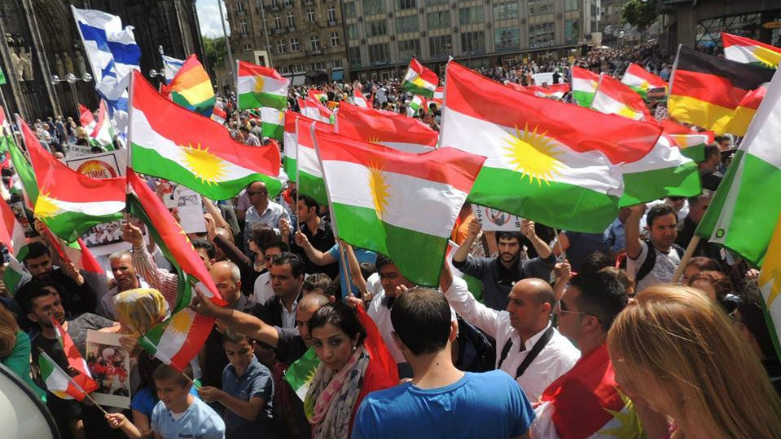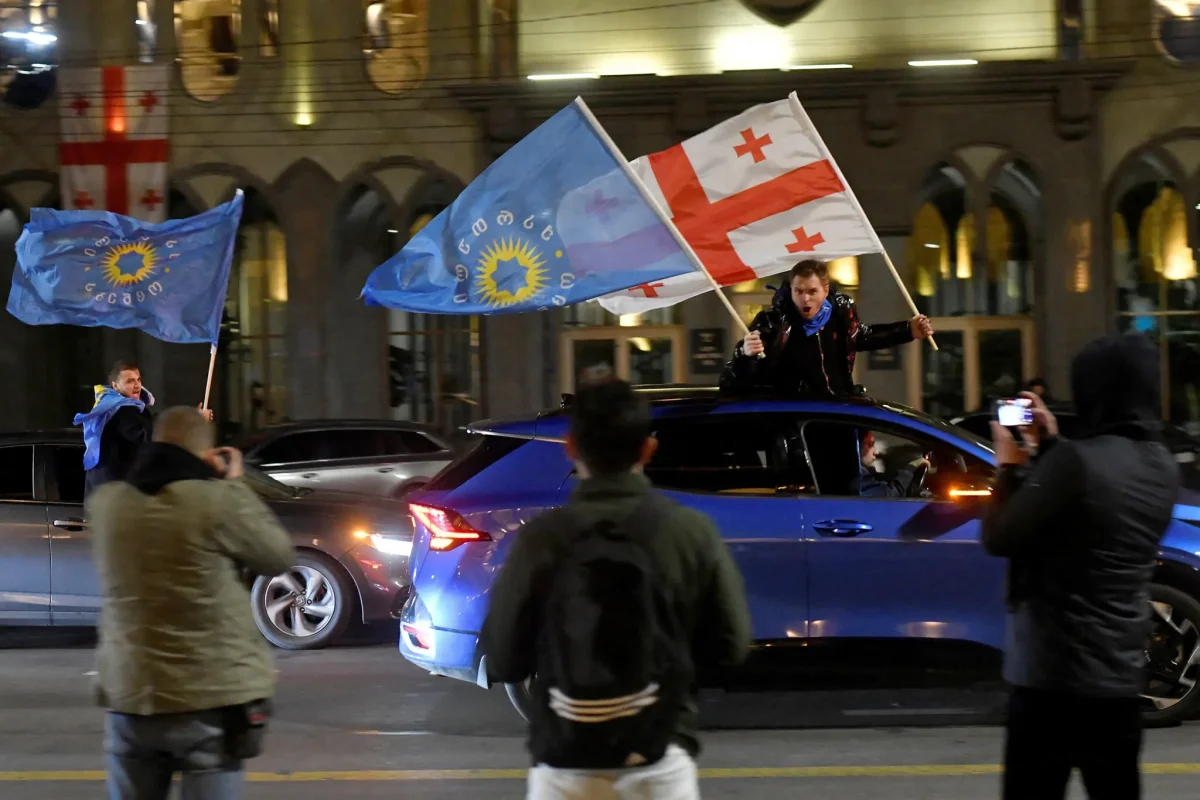What you should know about the Kurdistan referendum:
Monday, September 25, registered voters in Iraq’s Kurdistan region, numbering more than five million, voted overwhelmingly to become an independent state. Turnout was reported at 72 percent and over 90 percent of people voted yes. The referendum was organised by the regional government despite calls by Iraq that it was illegal and included all areas under the Kurdistan government’s control, even major cities like Kirkuk that are not officially part of the region but that the Kurds took over after ousting the Islamic State. Kurdish administrators insist, in the wake of harsh criticism from the national government, that the result is not binding and acts as a mandate for the region’s desire for independence. Here is what you need to know about the referendum and what it means.
Who are the Kurds?
Kurds are an ethnic group present in Iraq, Syria, Turkey, and Iran with a distinct set of traditions and culture and a language, Kurdish, that is related to Persian. They have a long history of being oppressed, from the denial of a kurdish state following the breakup of the Ottoman Empire after World War One to massacres under Syria’s Assad regime, to ethnic cleansing campaigns by Saddam Hussein. Recently Syrian and Iraqi kurds have gained greater power over themselves through Iraq’s Kurdistan regional government, which is autonomous from Iraq’s central government, and through the presence in Syria of a territory administered by Kurdish forces. The Kurdish regional government has its capital at Erbil, within the region the Iraqi government officially allows it to control, but also owns certain areas of Iraq that are not part of the official region. These it seized over the last three years after taking them from ISIS, which itself had captured them from Iraq’s national government. These include places without a Kurdish majority, as well as the city of Kirkuk, a city of 800,000 which Baghdad says it illegally occupies. These areas are also part of the referendum, though, and they too voted for independence.
Why do they want independence?
One of the reasons they want independence is a sense of national identity and that they are not the same people as other Iraqis, Turks, etc, and that they deserve their own country. There is a feeling that kurdish traditions need to be upheld and that statehood would benefit the kurdish identity. Many, especially in Iraq, also believe that independence would put an end to the historical oppression of Kurds and help preserve the Kurdish people and their traditions from outside interference. Recently Iraqi Kurdistan has prospered more and been more stable than the rest of the country and there is also a sense that the national government and the rest of Iraq is holding it back. Recent instability and the failure of Iraq’s prime minister, Haider al-Abadi, in dealing with Islamic State, the economy, and other problems only add to this view and have precipitated the issue. In addition, Iraq’s general chaos, compared to Kurdistan’s stability, mean that the national government is weak and that the opportunity for the referendum is great. There is a perception among Kurds that they failed to seize the opportunity for independence presented by the fall of the Ottomans, and kurdish politicians are now saying that this new opportunity must not be wasted.
What is been the reaction to the referendum?
Apart from Kurds themselves, there has been almost universal condemnation of the referendum. In Iraq, the referendum has caused huge tensions, with the prime minister, al-Abadi, threatening to use force if the referendum turned violent and an Iraqi court ineffectually ordering a halt to the vote on september 19th. While trying to reconcile the Kurds by appealing to national unity, al-Abadi also demanded that Kurdistan surrender control of two of its airports, threatening to create a no-fly zone over the region if the Kurds did not comply.
It is natural for the Iraqis to oppose the vote, as Kurdish independence would lose Iraq prestige as well as vast tax and oil income. The fact that Kurdistan is one of the country’s richest regions means that it is very valuable to the government, as is Kurdish troops’ role as vital allies against Islamic State. Finally, the referendum damages Iraq’s already broken stability, and threatens to disunite other minorities such as Turkmen and Assyrians.
Turkey and Iran, nations with significant Kurdish populations, also spoke harshly. Turkey’s president, Recep Tayyip Erdoğan, called the referendum illegal and suggested that it would cause an “ethnic and sectarian war” by destabilising Iraq. He also threatened economic sanctions including cutting off food and stopping oil imports, which would paralyse the Kurdish economy. Erdoğan even voiced a desire to use military means to prevent Kurdish independence and led Turkey to launch joint war-games with Iraq near the Kurdish border. Iran meanwhile vowed to follow Iraq and Turkey in their stance on the referendum and also threatened sanctions, while blocking flights from Iraqi Kurdistan from passing over its airspace. In a show of force, it held wargames of its own and flew jets over its Kurdish regions, before revealing a plans for a new missile system on the Iraqi border. These gestures reveal the singular determination of Turkey and Iran to oppose attempts at Kurdish independence which they consider a threat to their own security and the stability of their kurdish areas.
The UN and even the United States and Britain, which have traditionally been allies of the Kurds and supply their forces fighting Islamic State, have also denounced the referendum. UN Secretary-General Antonio Guterres said the issue could be better solved with “structured dialogue and constructive compromise” and criticised the timing by saying that it would harm the fight against ISIS. The US and UK voiced similar concerns about the division that the referendum would spark and its effects on the fight against the Islamic State, which they see as a priority over Kurdish self-determination.
Perhaps the only friend the Kurds had, ironically, was Israel, after its prime-minister Benjamin Netanyahu endorsed Kurdish independence on September 13th. Israel had long been a supporter of the Kurds especially due to historical enmity with Iraq and very real tensions with Iran. However even they seem to have recanted, with Netanyahu barring the Israeli government from commenting on the vote on the 26th. This change of heart, though it goes against historical precedent, is not unnatural, as Israel’s greatest ally in the Middle-East is Turkey, which heavily opposes the referendum. Tel Aviv’s previous position alienated the Turks, threatening a vital partner that many Israelis feel they need to deter tensions with Iran and the arabs.
What Next?
Masoud Barzani, Iraqi Kurdistan’s president, has said that the referendum is not binding, and therefore the Kurds are unlikely to declare independence. Such a move would be very risky and likely cause war, which neither Iraq, Turkey, the Kurds, or anyone else in the region is able to afford. The result, showing an overwhelming desire for independence, cannot be ignored however. Barzani has said that he considers it a mandate for negotiations leading towards Kurdish independence and it is likely that he will push for these soon. Baghdad and the powers interested in the situation, however, will likely push against this. Allowing Kurdish independence is simply undesirable for many, whether in current circumstances or at all, and it is probable that any attempts at dialogue are dead from the start. Iraq, Turkey, and others could also hamper Kurdish efforts by carrying out their threats of sanctions, which would leave Kurdistan paralysed economically and unable to sustain itself, forcing it to relinquish its aspirations. For the US, the antagonism between the kurds and other nations creates the possibility of a dilemma on which ally to support between the Kurds, vital to fighting ISIS, and Turkey and Iraq. The situation on the whole is fraught with uncertainty and tension.
Featured Image Credit: Cloudmind
By Maxime Rotsaert

































































